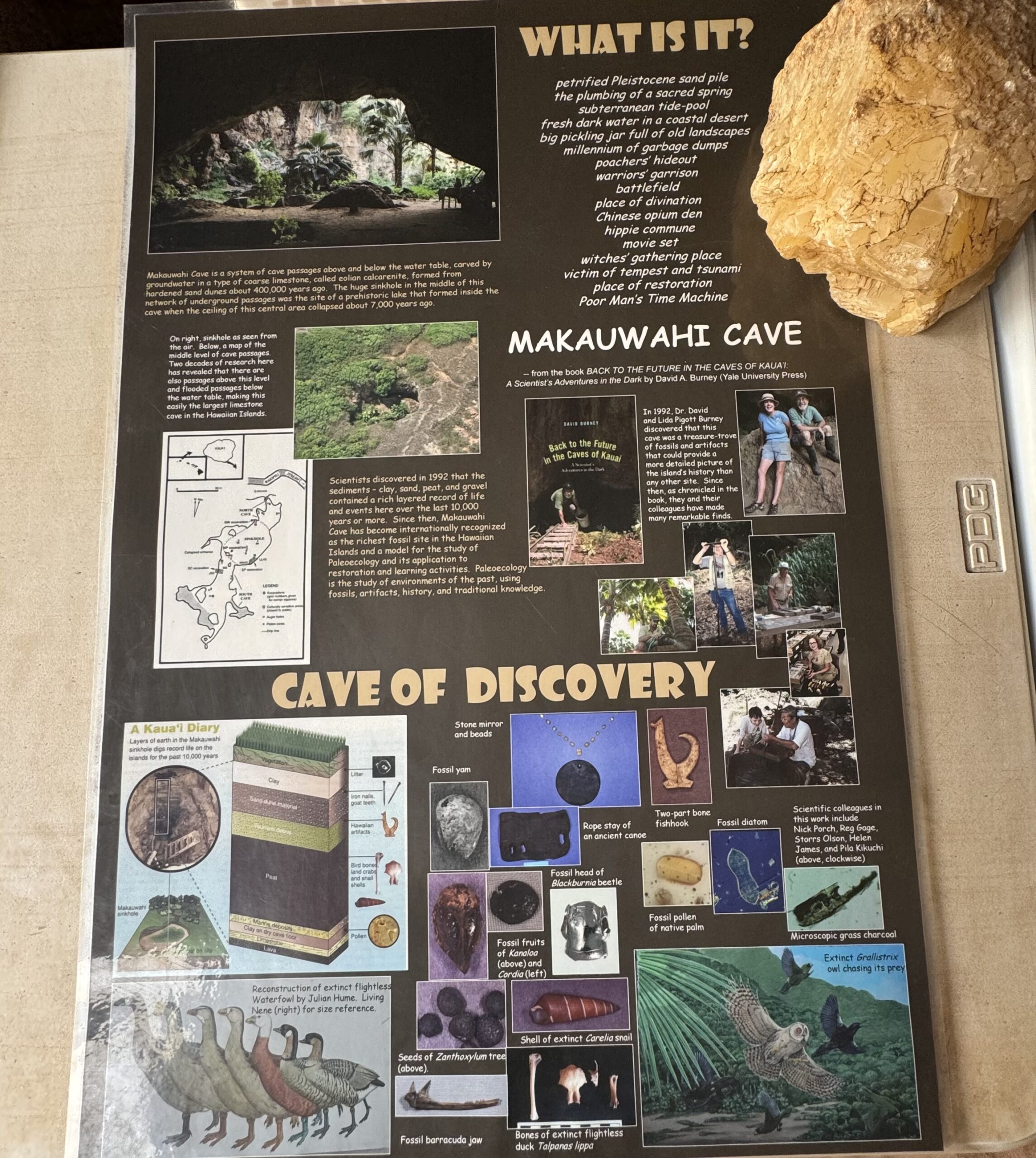The beloved Makauwahi Cave Reserve, a 17-acre ecological and archaeological treasure on Kauai’s southern coast, will permanently close its doors on October 31st, 2024, marking the end of a 20-year lease that has allowed the public to explore one of Hawaii’s most fascinating natural sites. Visitors have until the end of the month to explore the cave and its surrounding nature trails, which include opportunities to see restored wetlands, ancient plant species, and endangered Hawaiian wildlife.
The reserve, home to the largest limestone cave in the Hawaiian Islands and one of the richest fossil sites in the Pacific, has been a destination for nature lovers, scientists, and visitors seeking to immerse themselves in the island’s unique environmental history. The cave’s archaeological significance stretches back over 10,000 years, revealing fossils, ancient plant remains, and signs of early Polynesian habitation. It has also become a sanctuary for native plants and animals, thanks to a dedicated restoration project that has transformed the surrounding area from degraded land into a thriving ecosystem. Dr. David Burney, a paleoecologist who co-founded the Makauwahi Cave Reserve along with his wife, Lida Pigott Burney, have managed the reserve through a non-profit, and have expressed bittersweet emotions about the closure.
The Makauwahi Cave Reserve has not only served as a hub for research but also as a model for ecological restoration. Over the past two decades, it has attracted thousands of visitors, including school groups, researchers, and tourists eager to learn about Hawaii’s ancient past and modern conservation efforts.
Efforts to extend the lease or secure additional funding to keep the reserve open were unsuccessful, leading to the decision to close the site to the public. With the lease expiring, ownership of the land will revert to the landowner, Grove Farm Company, Inc., whose plans for the site remain unclear. The reserve’s closure raises concerns about the future of the research conducted at the site, as scientists have relied on continued access to the cave for ongoing projects.
For those who have visited Makauwahi Cave Reserve over the years, the closure represents the end of an era. However, its legacy as a site of scientific discovery, ecological recovery, and community education will continue to resonate long after its gates close.
As the countdown to October 31 begins, many are taking the opportunity to visit the cave one last time, reflecting on the reserve’s remarkable contribution to Kauai’s environmental and cultural narrative.
